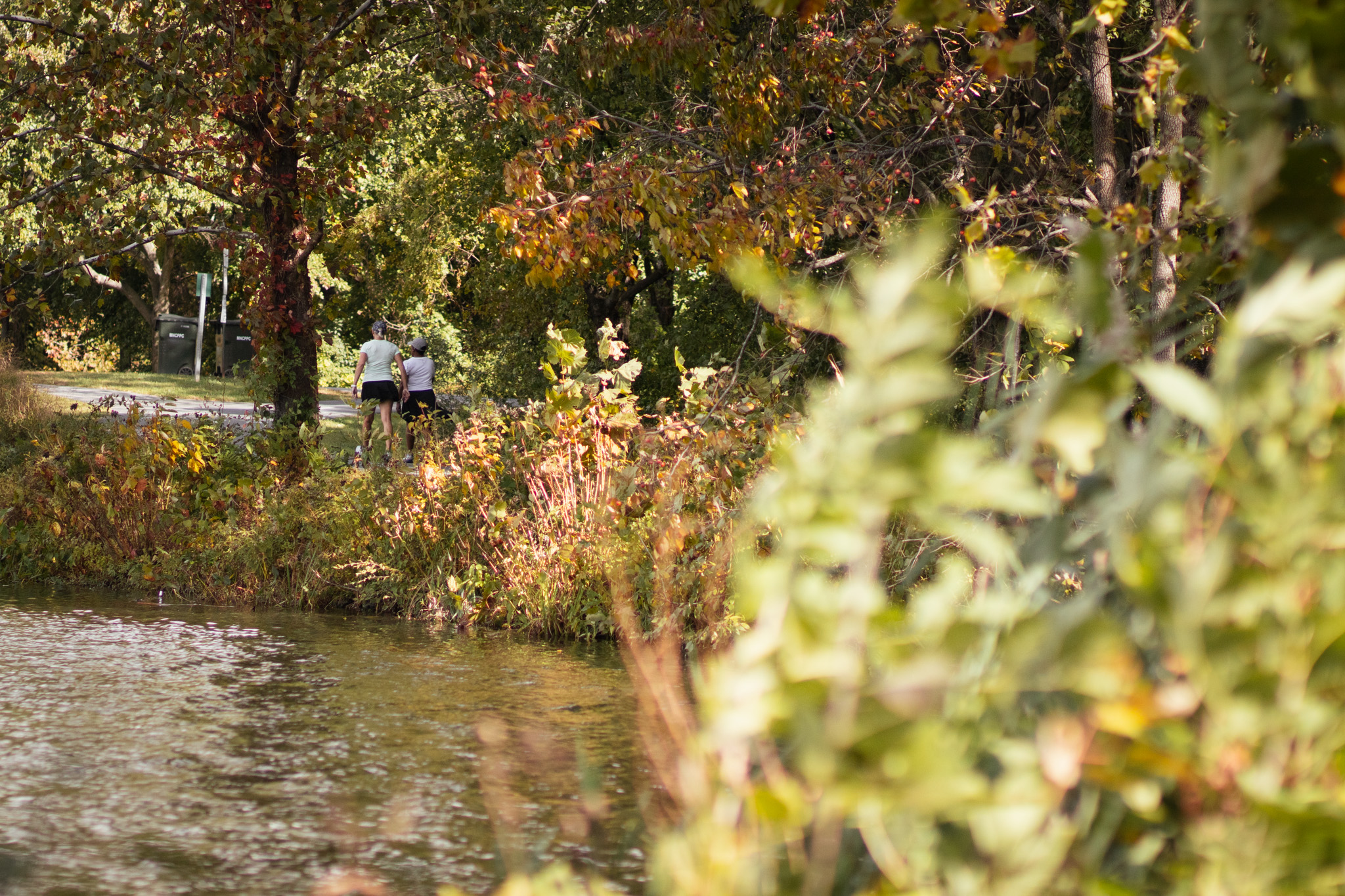By Seann McCombie
For The Diamondback
Several University of Maryland graduate students, faculty and volunteers addressed issues about Guilford Woods, an off-campus woodland, during a forest walk event Thursday.
The walk was part of this university’s event for Brazil Week, an annual celebration of the country’s independence, which showcased pressing topics in Brazil such as environmental activism. The event was made in partnership with Voices of the Woods — a community of graduate students who aim to spread awareness of the potential developmental projects in Guilford Woods.
During the event, organizers raised concerns about the local fight against development plans in Guilford Woods, an area near this university’s business school. Since the COVID-19 pandemic, this university has devised plans to create new graduate housing in the woodland, which has raised environmental and financial concerns in College Park.
This about 15-acre piece of land has been widely up for debate on whether it should continue to be a natural habitat or if it should become part of graduate housing, according to a Thursday presentation by faculty members in this university’s environmental studies department.
[UMD community frustrated about lack of communication on tree-cutting in Guilford Woods]
The presentation detailed different strategies that students and local citizens can use to become part of the movement to preserve Guilford Woods.
“It’s important to know what’s going on in your community and it’s important for an environmental impact of the woods and to make genuinely green decisions about building and to be informed,” junior English major Alex Jentz said.
A main purpose behind the organization’s widespread involvement is to “protest against greed and the pursuit for unrestricted development,” according to the Voices of the Woods website.
Actions to raise environmental awareness can include signing positions, postings on social media platforms, or even contacting university president Darryll Pines or elected officials, according to Thursday’s presentation.
After the informational presentation, attendees were invited on a guided walk that gave viewers a firsthand perspective on the concerns regarding Guilford Woods. The woods presented wildlife as well as different species and varieties of plant structures.
On the walk, attendees saw signs attached to trees with messages such as “I am happy you are here. Can you help me survive?” and “We breathe the same air.”
[UMD to pause development of Guilford Woods following months of backlash]
Environmental health sciences doctoral student Jan-Michael Archer, one of the event’s presenters, said this university’s community should be more involved and care about Guilford Woods because of the area’s history and benefits.
Guilford Woods provides “significant ecological benefits to the area,” such as stormwater and heat mitigation, Archer said.
Marilyn Yang, an alum of this university, said she sees a hopeful resolution for the woods.
Yang, a core organizer for Students for Guilford Woods, said she hopes the woods becomes a community space with marked trails and more accessibility for campus community members.
“My hope is that eventually there will be a permanent solution,” Yang said. “We were really pushing [for] a permanent conservation easement of Guilford Woods.”



